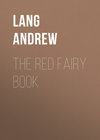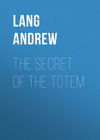Kitabı oku: «Waverley; Or, 'Tis Sixty Years Since», sayfa 11
CHAPTER IX
MORE OF THE MANOR-HOUSE AND ITS ENVIRONS
After having satisfied his curiosity by gazing around him for a few minutes, Waverley applied himself to the massive knocker of the hall-door, the architrave of which bore the date 1594. But no answer was returned, though the peal resounded through a number of apartments, and was echoed from the court-yard walls without the house, startling the pigeons from the venerable rotunda which they occupied, and alarming anew even the distant village curs, which had retired to sleep upon their respective dunghills. Tired of the din which he created, and the unprofitable responses which it excited, Waverley began to think that he had reached the castle of Orgoglio as entered by the victorious Prince Arthur, —
When ‘gan he loudly through the house to call,
But no man cared to answer to his cry;
There reign’d a solemn silence over all,
Nor voice was heard, nor wight was seen in bower or hall.
Filled almost with expectation of beholding some ‘old, old man, with beard as white as snow,’ whom he might question concerning this deserted mansion, our hero turned to a little oaken wicket-door, well clenched with iron-nails, which opened in the court-yard wall at its angle with the house. It was only latched, notwithstanding its fortified appearance, and, when opened, admitted him into the garden, which presented a pleasant scene. [Footnote: Footnote: At Ravelston may be seen such a garden, which the taste of the proprietor, the author’s friend and kinsman, Sir Alexander Keith, Knight Mareschal, has judiciously preserved. That, as well as the house is, however, of smaller dimensions than the Baron of Bradwardine’s mansion and garden are presumed to have been.] The southern side of the house, clothed with fruit-trees, and having many evergreens trained upon its walls, extended its irregular yet venerable front along a terrace, partly paved, partly gravelled, partly bordered with flowers and choice shrubs. This elevation descended by three several flights of steps, placed in its centre and at the extremities, into what might be called the garden proper, and was fenced along the top by a stone parapet with a heavy balustrade, ornamented from space to space with huge grotesque figures of animals seated upon their haunches, among which the favourite bear was repeatedly introduced. Placed in the middle of the terrace between a sashed-door opening from the house and the central flight of steps, a huge animal of the same species supported on his head and fore-paws a sun-dial of large circumference, inscribed with more diagrams than Edward’s mathematics enabled him to decipher.
The garden, which seemed to be kept with great accuracy, abounded in fruit-trees, and exhibited a profusion of flowers and evergreens, cut into grotesque forms. It was laid out in terraces, which descended rank by rank from the western wall to a large brook, which had a tranquil and smooth appearance, where it served as a boundary to the garden; but, near the extremity, leapt in tumult over a strong dam, or wear-head, the cause of its temporary tranquillity, and there forming a cascade, was overlooked by an octangular summer-house, with a gilded bear on the top by way of vane. After this feat, the brook, assuming its natural rapid and fierce character, escaped from the eye down a deep and wooded dell, from the copse of which arose a massive, but ruinous tower, the former habitation of the Barons of Bradwardine. The margin of the brook, opposite to the garden, displayed a narrow meadow, or haugh, as it was called, which formed a small washing-green; the bank, which retired behind it, was covered by ancient trees.
The scene, though pleasing, was not quite equal to the gardens of Alcina; yet wanted not the ‘due donzellette garrule’ of that enchanted paradise, for upon the green aforesaid two bare-legged damsels, each standing in a spacious tub, performed with their feet the office of a patent washing-machine. These did not, however, like the maidens of Armida, remain to greet with their harmony the approaching guest, but, alarmed at the appearance of a handsome stranger on the opposite side, dropped their garments (I should say garment, to be quite correct) over their limbs, which their occupation exposed somewhat too freely, and, with a shrill exclamation of ‘Eh, sirs!’ uttered with an accent between modesty and coquetry, sprung off like deer in different directions.
Waverley began to despair of gaining entrance into this solitary and seemingly enchanted mansion, when a man advanced up one of the garden alleys, where he still retained his station. Trusting this might be a gardener, or some domestic belonging to the house, Edward descended the steps in order to meet him; but as the figure approached, and long before he could descry its features, he was struck with the oddity of its appearance and gestures. Sometimes this mister wight held his hands clasped over his head, like an Indian Jogue in the attitude of penance; sometimes he swung them perpendicularly, like a pendulum, on each side; and anon he slapped them swiftly and repeatedly across his breast, like the substitute used by a hackney-coachman for his usual flogging exercise, when his cattle are idle upon the stand, in a clear frosty day. His gait was as singular as his gestures, for at times he hopped with great perseverance on the right foot, then exchanged that supporter to advance in the same manner on the left, and then putting his feet close together he hopped upon both at once. His attire also was antiquated and extravagant. It consisted in a sort of grey jerkin, with scarlet cuffs and slashed sleeves, showing a scarlet lining; the other parts of the dress corresponded in colour, not forgetting a pair of scarlet stockings, and a scarlet bonnet, proudly surmounted with a turkey’s feather. Edward, whom he did not seem to observe, now perceived confirmation in his features of what the mien and gestures had already announced. It was apparently neither idiocy nor insanity which gave that wild, unsettled, irregular expression to a face which naturally was rather handsome, but something that resembled a compound of both, where the simplicity of the fool was mixed with the extravagance of a crazed imagination. He sung with great earnestness, and not without some taste, a fragment of an old Scottish ditty: —
False love, and hast thou play’d me this
In summer among the flowers?
I will repay thee back again
In winter among the showers.
Unless again, again, my love,
Unless you turn again;
As you with other maidens rove,
I’ll smile on other men.
[Footnote: This is a genuine ancient fragment, with some alteration in the two last lines.]
Here lifting up his eyes, which had hitherto been fixed in observing how his feet kept time to the tune, he beheld Waverley, and instantly doffed his cap, with many grotesque signals of surprise, respect, and salutation. Edward, though with little hope of receiving an answer to any constant question, requested to know whether Mr. Bradwardine were at home, or where he could find any of the domestics. The questioned party replied, and, like the witch of Thalaba, ‘still his speech was song,’ —
The Knight’s to the mountain
His bugle to wind;
The Lady’s to greenwood
Her garland to bind.
The bower of Burd Ellen
Has moss on the floor,
That the step of Lord William
Be silent and sure.
This conveyed no information, and Edward, repeating his queries, received a rapid answer, in which, from the haste and peculiarity of the dialect, the word ‘butler’ was alone intelligible. Waverley then requested to see the butler; upon which the fellow, with a knowing look and nod of intelligence, made a signal to Edward to follow, and began to dance and caper down the alley up which he had made his approaches. A strange guide this, thought Edward, and not much unlike one of Shakespeare’s roynish clowns. I am not over prudent to trust to his pilotage; but wiser men have been led by fools. By this time he reached the bottom of the alley, where, turning short on a little parterre of flowers, shrouded from the east and north by a close yew hedge, he found an old man at work without his coat, whose appearance hovered between that of an upper servant and gardener; his red nose and ruffled shirt belonging to the former profession; his hale and sunburnt visage, with his green apron, appearing to indicate
Old Adam’s likeness, set to dress this garden.
The major domo, for such he was, and indisputably the second officer of state in the barony (nay, as chief minister of the interior, superior even to Bailie Macwheeble in his own department of the kitchen and cellar) – the major domo laid down his spade, slipped on his coat in haste, and with a wrathful look at Edward’s guide, probably excited by his having introduced a stranger while he was engaged in this laborious, and, as he might suppose it, degrading office, requested to know the gentleman’s commands. Being informed that he wished to pay his respects to his master, that his name was Waverley, and so forth, the old man’s countenance assumed a great deal of respectful importance. ‘He could take it upon his conscience to say, his honour would have exceeding pleasure in seeing him. Would not Mr. Waverley choose some refreshment after his journey? His honour was with the folk who were getting doon the dark hag; the twa gardener lads (an emphasis on the word twa) had been ordered to attend him; and he had been just amusing himself in the mean time with dressing Miss Rose’s flower-bed, that he might be near to receive his honour’s orders, if need were; he was very fond of a garden, but had little time for such divertisements.’
‘He canna get it wrought in abune twa days in the week at no rate whatever,’ said Edward’s fantastic conductor.
A grim look from the butler chastised his interference, and he commanded him, by the name of Davie Gellatley, in a tone which admitted no discussion, to look for his honour at the dark hag, and tell him there was a gentleman from the south had arrived at the Ha’.
‘Can this poor fellow deliver a letter?’ asked Edward.
‘With all fidelity, sir, to any one whom he respects. I would hardly trust him with a long message by word of mouth – though he is more knave than fool.’
Waverley delivered his credentials to Mr. Gellatley, who seemed to confirm the butler’s last observation, by twisting his features at him, when he was looking another way, into the resemblance of the grotesque face on the bole of a German tobacco pipe; after which, with an odd conge to Waverley, he danced off to discharge his errand.
‘He is an innocent, sir,’ said the butler; ‘there is one such in almost every town in the country, but ours is brought far ben. [Footnote: See Note 8.] He used to work a day’s turn weel enough; but he helped Miss Rose when she was flemit with the Laird of Killancureit’s new English bull, and since that time we ca’ him Davie Do-little; indeed we might ca’ him Davie Do-naething, for since he got that gay clothing, to please his honour and my young mistress (great folks will have their fancies), he has done naething but dance up and down about the toun, without doing a single turn, unless trimming the laird’s fishing-wand or busking his flies, or may be catching a dish of trouts at an orra time. But here comes Miss Rose, who, I take burden upon me for her, will be especial glad to see one of the house of Waverley at her father’s mansion of Tully-Veolan.’
But Rose Bradwardine deserves better of her unworthy historian than to be introduced at the end of a chapter.
In the mean while it may be noticed, that Waverley learned two things from this colloquy: that in Scotland a single house was called a TOWN, and a natural fool an INNOCENT.
CHAPTER X
ROSE BRADWARDINE AND HER FATHER
Miss Bradwardine was but seventeen; yet, at the last races of the county town of – , upon her health being proposed among a round of beauties, the Laird of Bumperquaigh, permanent toast-master and croupier of the Bautherwhillery Club, not only said MORE to the pledge in a pint bumper of Bourdeaux, but, ere pouring forth the libation, denominated the divinity to whom it was dedicated, ‘the Rose of Tully-Veolan’; upon which festive occasion three cheers were given by all the sitting members of that respectable society, whose throats the wine had left capable of such exertion. Nay, I am well assured, that the sleeping partners of the company snorted applause, and that although strong bumpers and weak brains had consigned two or three to the floor, yet even these, fallen as they were from their high estate, and weltering – I will carry the parody no farther – uttered divers inarticulate sounds, intimating their assent to the motion.
Such unanimous applause could not be extorted but by acknowledged merit; and Rose Bradwardine not only deserved it, but also the approbation of much more rational persons than the Bautherwhillery Club could have mustered, even before discussion of the first magnum. She was indeed a very pretty girl of the Scotch cast of beauty, that is, with a profusion of hair of paley gold, and a skin like the snow of her own mountains in whiteness. Yet she had not a pallid or pensive cast of countenance; her features, as well as her temper, had a lively expression; her complexion, though not florid, was so pure as to seem transparent, and the slightest emotion sent her whole blood at once to her face and neck. Her form, though under the common size, was remarkably elegant, and her motions light, easy, and unembarrassed. She came from another part of the garden to receive Captain Waverley, with a manner that hovered between bashfulness and courtesy.
The first greetings past, Edward learned from her that the dark hag, which had somewhat puzzled him in the butler’s account of his master’s avocations, had nothing to do either with a black cat or a broomstick, but was simply a portion of oak copse which was to be felled that day. She offered, with diffident civility, to show the stranger the way to the spot, which, it seems, was not far distant; but they were prevented by the appearance of the Baron of Bradwardine in person, who, summoned by David Gellatley, now appeared, ‘on hospitable thoughts intent,’ clearing the ground at a prodigious rate with swift and long strides, which reminded Waverley of the seven-league boots of the nursery fable. He was a tall, thin, athletic figure, old indeed and grey-haired, but with every muscle rendered as tough as whip-cord by constant exercise. He was dressed carelessly, and more like a Frenchman than an Englishman of the period, while, from his hard features and perpendicular rigidity of stature, he bore some resemblance to a Swiss officer of the guards, who had resided some time at Paris, and caught the costume, but not the ease or manner, of its inhabitants. The truth was, that his language and habits were as heterogeneous as his external appearance.
Owing to his natural disposition to study, or perhaps to a very general Scottish fashion of giving young men of rank a legal education, he had been bred with a view to the bar. But the politics of his family precluding the hope of his rising in that profession, Mr. Bradwardine travelled with high reputation for several years, and made some campaigns in foreign service. After his demele with the law of high treason in 1715, he had lived in retirement, conversing almost entirely with those of his own principles in the vicinage. The pedantry of the lawyer, superinduced upon the military pride of the soldier, might remind a modern of the days of the zealous volunteer service, when the bar-gown of our pleaders was often flung over a blazing uniform. To this must be added the prejudices of ancient birth and Jacobite politics, greatly strengthened by habits of solitary and secluded authority, which, though exercised only within the bounds of his half-cultivated estate, was there indisputable and undisputed. For, as he used to observe, ‘the lands of Bradwardine, Tully-Veolan, and others, had been erected into a free barony by a charter from David the First, cum liberali potest. habendi curias et justicias, cum fossa et furca (LIE, pit and gallows) et saka et soka, et thol et theam, et infang-thief et outfang-thief, sive hand-habend, sive bak-barand.’ The peculiar meaning of all these cabalistical words few or none could explain; but they implied, upon the whole, that the Baron of Bradwardine might, in case of delinquency, imprison, try, and execute his vassals at his pleasure. Like James the First, however, the present possessor of this authority was more pleased in talking about prerogative than in exercising it; and excepting that he imprisoned two poachers in the dungeon of the old tower of Tully-Veolan, where they were sorely frightened by ghosts, and almost eaten by rats, and that he set an old woman in the jougs (or Scottish pillory) for saying’ there were mair fules in the laird’s ha’ house than Davie Gellatley,’ I do not learn that he was accused of abusing his high powers. Still, however, the conscious pride of possessing them gave additional importance to his language and deportment.
At his first address to Waverley, it would seem that the hearty pleasure he felt to behold the nephew of his friend had somewhat discomposed the stiff and upright dignity of the Baron of Bradwardine’s demeanour, for the tears stood in the old gentleman’s eyes, when, having first shaken Edward heartily by the hand in the English fashion, he embraced him a la mode Francoise, and kissed him on both sides of his face; while the hardness of his gripe, and the quantity of Scotch snuff which his accolade communicated, called corresponding drops of moisture to the eyes of his guest.
‘Upon the honour of a gentleman,’ he said, ‘but it makes me young again to see you here, Mr. Waverley! A worthy scion of the old stock of Waverley-Honour – spes altera, as Maro hath it – and you have the look of the old line, Captain Waverley; not so portly yet as my old friend Sir Everard – mais cela viendra avec le tems, as my Dutch acquaintance, Baron Kikkitbroeck, said of the sagesse of Madame son epouse. And so ye have mounted the cockade? Right, right; though I could have wished the colour different, and so I would ha’ deemed might Sir Everard. But no more of that; I am old, and times are changed. And how does the worthy knight baronet, and the fair Mrs. Rachel? – Ah, ye laugh, young man! In troth she was the fair Mrs. Rachel in the year of grace seventeen hundred and sixteen; but time passes – et singula praedantur anni – that is most certain. But once again ye are most heartily welcome to my poor house of Tully-Veolan! Hie to the house, Rose, and see that Alexander Saunderson looks out the old Chateau Margaux, which I sent from Bourdeaux to Dundee in the year 1713.’
Rose tripped off demurely enough till she turned the first corner, and then ran with the speed of a fairy, that she might gain leisure, after discharging her father’s commission, to put her own dress in order, and produce all her little finery, an occupation for which the approaching dinner-hour left but limited time.
‘We cannot rival the luxuries of your English table, Captain Waverley, or give you the epulae lautiores of Waverley-Honour. I say epulae rather than prandium, because the latter phrase is popular: epulae ad senatum, prandium vero ad populum attinet, says Suetonius Tranquillus. But I trust ye will applaud my Bourdeaux; c’est des deux oreilles, as Captain Vinsauf used to say; vinum primae notae, the principal of Saint Andrews denominated it. And, once more, Captain Waverley, right glad am I that ye are here to drink the best my cellar can make forthcoming.’
This speech, with the necessary interjectional answers, continued from the lower alley where they met up to the door of the house, where four or five servants in old-fashioned liveries, headed by Alexander Saunderson, the butler, who now bore no token of the sable stains of the garden, received them in grand COSTUME,
In an old hall hung round with pikes and with bows,
With old bucklers and corslets that had borne many shrewd blows.
With much ceremony, and still more real kindness, the Baron, without stopping in any intermediate apartment, conducted his guest through several into the great dining parlour, wainscotted with black oak, and hung round with the pictures of his ancestry, where a table was set forth in form for six persons, and an old-fashioned beaufet displayed all the ancient and massive plate of the Bradwardine family. A bell was now heard at the head of the avenue; for an old man, who acted as porter upon gala days, had caught the alarm given by Waverley’s arrival, and, repairing to his post, announced the arrival of other guests.
These, as the Baron assured his young friend, were very estimable persons. ‘There was the young Laird of Balmawhapple, a Falconer by surname, of the house of Glenfarquhar, given right much to field-sports – gaudet equis et canibus – but a very discreet young gentleman. Then there was the Laird of Killancureit, who had devoted his leisure UNTILL tillage and agriculture, and boasted himself to be possessed of a bull of matchless merit, brought from the county of Devon (the Damnonia of the Romans, if we can trust Robert of Cirencester). He is, as ye may well suppose from such a tendency, but of yeoman extraction – servabit odorem testa diu – and I believe, between ourselves, his grandsire was from the wrong side of the Border – one Bullsegg, who came hither as a steward, or bailiff, or ground-officer, or something in that department, to the last Girnigo of Killancureit, who died of an atrophy. After his master’s death, sir, – ye would hardly believe such a scandal, – but this Bullsegg, being portly and comely of aspect, intermarried with the lady dowager, who was young and amorous, and possessed himself of the estate, which devolved on this unhappy woman by a settlement of her umwhile husband, in direct contravention of an unrecorded taillie, and to the prejudice of the disponer’s own flesh and blood, in the person of his natural heir and seventh cousin, Girnigo of Tipperhewit, whose family was so reduced by the ensuing law-suit, that his representative is now serving as a private gentleman-sentinel in the Highland Black Watch. But this gentleman, Mr. Bullsegg of Killancureit that now is, has good blood in his veins by the mother and grandmother, who were both of the family of Pickletillim, and he is well liked and looked upon, and knows his own place. And God forbid, Captain Waverley, that we of irreproachable lineage should exult over him, when it may be, that in the eighth, ninth, or tenth generation, his progeny may rank, in a manner, with the old gentry of the country. Rank and ancestry, sir, should be the last words in the mouths of us of unblemished race – vix ea nostra voco, as Naso saith. There is, besides, a clergyman of the true (though suffering) Episcopal church of Scotland. [Footnote: See Note 9.] He was a confessor in her cause after the year 1715, when a Whiggish mob destroyed his meeting-house, tore his surplice, and plundered his dwelling-house of four silver spoons, intromitting also with his mart and his mealark, and with two barrels, one of single and one of double ale, besides three bottles of brandy. My baron-bailie and doer, Mr. Duncan Macwheeble, is the fourth on our list. There is a question, owing to the incertitude of ancient orthography, whether he belongs to the clan of Wheedle or of Quibble, but both have produced persons eminent in the law.’ —
As such he described them by person and name,
They enter’d, and dinner was served as they came.



![XXXII Ballades in Blue China [1885]](https://cdn.litres.ru/pub/c/cover_100/25230660.jpg)






